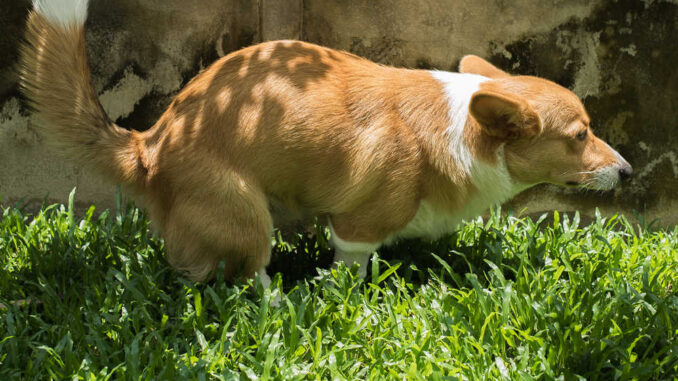
This article was updated on May 5th, 2023

Before becoming a veterinarian, my life was not so focused on poop. Now that I’m in practice, I am constantly looking at the color and consistency of dog poop as an indicator of some serious diseases. Dog poop can come in nearly all shades of the rainbow, with green being a common (yet alarming!) color.
What Causes Green Dog Poop
The most frequent causes include:
- Something they ate
- Parasites or giardia
- Changes in diet
- Too much fat
- Rat poison ingestion
- Intestinal issues
When is Green Dog Poop NOT a Concern?
“If your dog’s stool has normal consistency with uniform color, the green color is usually not a cause of concern, especially if it happens infrequently and your dog isn’t showing any other signs of discomfort or illness.”
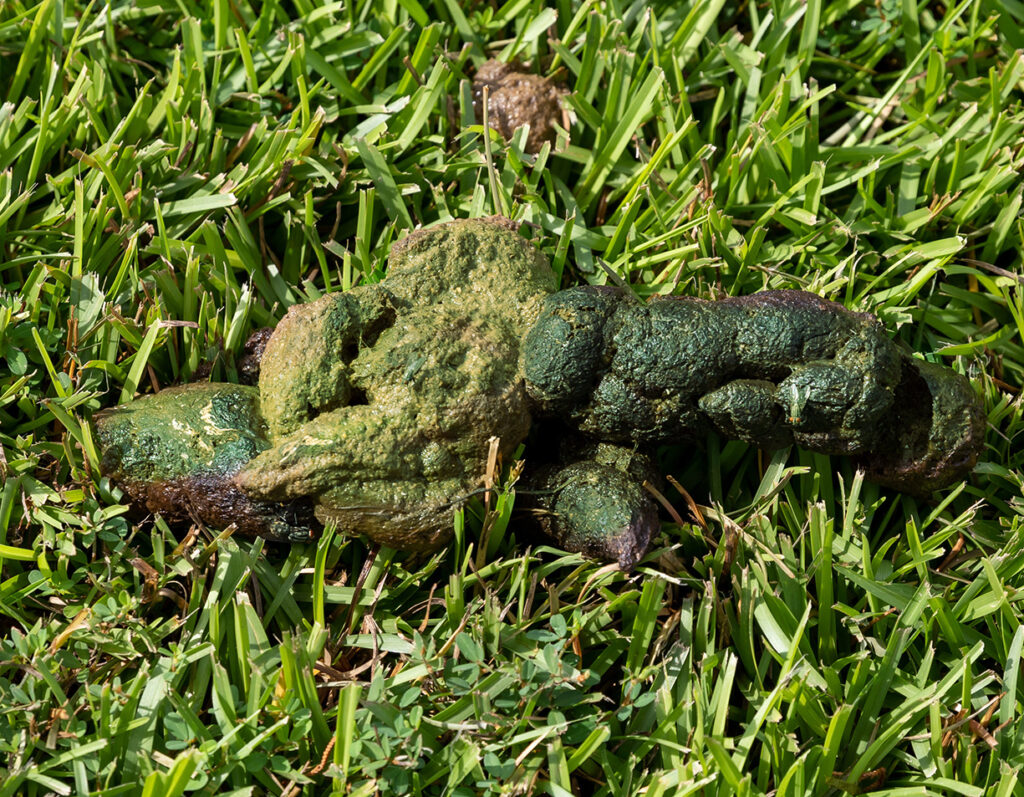
The likely causes of this type of green dog poop (with normal consistency as pictured above) are:
1. Something your dog ate
Some dogs, especially puppies, are indiscriminate eaters and will consume anything that resembles food. This can cause changes in their poop color.
Green poop is a common color because some dogs overdo eating grass. The grass is sometimes used by dogs as a natural upset stomach reliever, but some dogs make eating grass a habit that can turn their poop into a consistent green.
If your dog ate something green, such as grass, and their poop is usually normal consistency, it may be evenly green colored or have green chunks in it, especially if he happened on some crayons or other undigestible objects.
2. Changes in diet
Sudden diet changes in dogs can throw off their digestive balance and bring on poop that is green and runny. To avoid this, gradually switch your dog’s food over 7-10 days by mixing increasing amounts of the new food with the old.
When is Green Dog Poop a Concern?
“Green dog poop that has 1) a greasy or slimy consistency, 2) bloody streaks, or 3) excessive mucus is a cause for concern. You should also monitor your dog for other signs of illness such as loss of appetite or vomiting.”
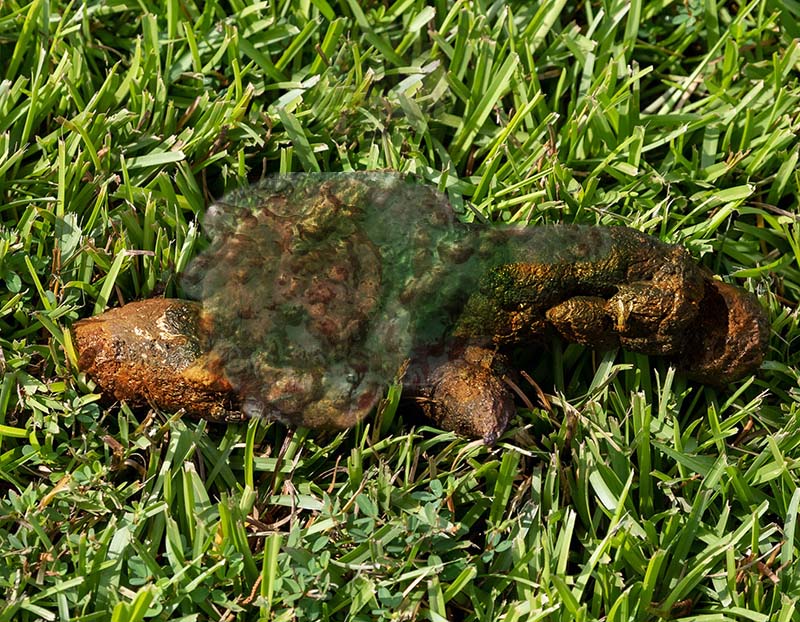
Dogs with this type of poop may also have a decreased appetite, weight loss, a fever, or abdominal pain. See your veterinarian if your dog is showing any other signs of illness or has this type of poop more than once.
Possible causes include:
Parasites: Internal worms can plague all dogs, even those that live indoors. A parasitic infection can lead to green dog poop with a slimy consistency. These dogs may experience constipation and straining, and you may even see worms in the feces. Your veterinarian will be able to diagnose and treat internal parasites with a fecal sample and parasiticides.
Giardia: Giardia infection can cause green and soft/runny poop in dogs, along with diarrhea. Dogs that come into contact with contaminated water sources or other animals are more susceptible to Giardia infections. If you suspect your dog has been infected, seek vet care immediately for treatment with specific antibiotics.
Too much fat: Diets that are too high in fat may produce a greenish-brown, greasy dog poop. Excess fat is often sent out of the body undigested, which causes a greasy appearance. Talk with your veterinarian about switching to a healthier diet.
Rat poison: Rat poisons kill rodents by decreasing the clotting capability of their blood so that they bleed out easily with any minor injury or by causing neurological damage and brain swelling. They can do the same to your dog if they ingest enough of it. Dogs may appear normal for several days after eating rat poison, or you may notice a greenish tint to their poop. Seek immediate veterinary help if you suspect your dog ate rat poison.
Other intestinal issues: Infections, inflammatory bowel disease, food allergies, hemorrhagic gastroenteritis, liver disease, and many other disorders can cause green dog poop. The consistency may be normal, runny, or mucousy, depending on the cause. Your dog may also show other signs, such as vomiting, fever, weight loss, and not wanting to eat. If your dog has any other signs or has had abnormal poop for more than a couple of days, see your veterinarian.
Important note: Keep in mind that pictures only don’t equal a diagnosis. Consult your veterinarian any time there are any changes with your dog, or if you’re at all concerned.
What Should You Do
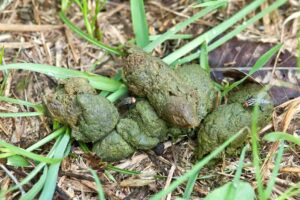
Green dog poop isn’t always a cause for concern, especially if you know the reason behind it (for example if you notice your dog eating a lot of grass or the frosting off of your Saint Patrick’s Day cupcakes). This typically requires no treatment and will go away on its own.
However, if your dog makes a habit out of grazing, try switching them to a high-fiber diet that will get them the digestive regulation that they are probably looking for.
- If you recently changed your dog’s diet, go back to the old food and try a more gradual transition. This will likely clear up the issue, especially if they are not showing any other signs.
- You may want to have your dog checked for internal parasites and treated as necessary as well.
If your dog has green poop more than a couple of times (or if your dog is showing other signs of illness):
If your dog has green poop more than a couple of times or if they’re showing any other signs of illness, it’s time to do something about it.
1. For mild digestive upset that may have the occasional vomiting episode, try withholding food for 4-6 hours and only offer small amounts of water. A bland diet of boiled chicken and rice for a couple of days may help as well. If this doesn’t end the issue within 48 hours, or if signs get worse, see your veterinarian.
Moderate to severe infections, such as parvo, may require fluids, anti-nausea medications, antibiotics, and a diet change. The cost can be anywhere from $200-$2,000, depending on the severity.
2. For green diarrhea that happens more than once or if there’s frequent vomiting, fever, or abdominal pain, don’t try anything at home, just see your vet.
This may be a sign of Giardia, a serious infection, or another digestive issue. Diagnostics and treatment will depend on the cause and may include blood work, fecal testing, imaging, fluids, anti-nausea medications, antibiotics, and hospitalization. Expect to pay anywhere from $200-$2,000 or more.
3. If you suspect that your dog ingested rat poison, see your vet immediately. The treatment for rat poison ingestion may cost around $200 if caught early. It’s going to be upwards of $2,000 or more if your dog is showing signs and needs blood transfusions and hospitalization. The sooner this issue is treated, the better the outcome.
When to See a Vet
Most of the time, the occasional green dog poop is no reason to worry, especially if your dog is a known grass eater. If grass consumption is starting to get out of hand, however, switching to a high-fiber diet may help stop the issue.
For dogs that have green poop that has abnormal inconsistency, frequency, or odor, you may choose to monitor for a couple of days as long as they are not showing any other signs of illness. If the green color doesn’t clear up after 48 hours, see your vet.
“Dogs that have abnormal green poop and are showing other signs of illness (such as vomiting, not wanting to eat, abdominal pain, or weight loss) should see a vet as soon as possible.”
When making a veterinary visit, it’s helpful to bring a fecal sample, if you have one, for the vet to see and possibly test. You will also want to note your dog’s appetite and water consumption and any other signs that they may be showing.
What Does Normal Poop Look Like?
Just as a refresher, in case you were wondering, normal dog poop should be light to dark brown.
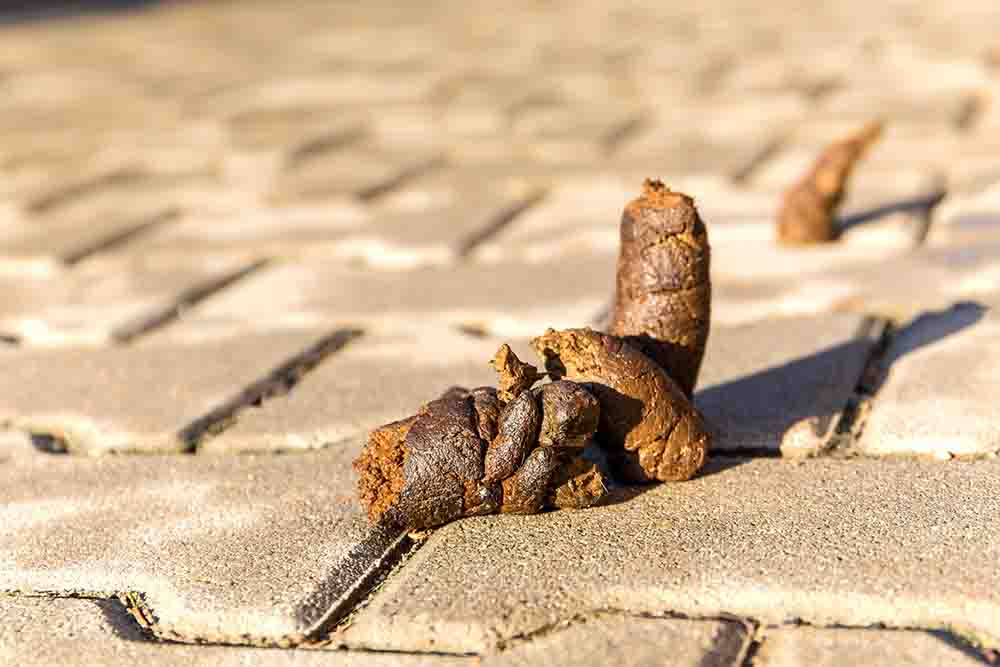
It should have a Tootsie Roll form and be able to stand up on its own. A dog should have no trouble passing it. The color may vary depending on their diet, and the amount and frequency may vary depending on how often you feed them.
More Tips
- Monitoring your dog’s poop every day is one of the best ways to catch any abnormalities early on.
- One abnormal bowel movement without any other signs is usually nothing to worry about. However, repeat abnormalities or other signs warrant looking into.
- Your vet may ask for an annual fecal sample to screen for internal parasites and other issues.
Read More About Dog Pooping Issues:
 Home Remedies to Help Dog with Mucus in Stools [Vet Approved] - As pet parents, it’s important that we keep a close eye on our pet’s health. While scooping poop may be… [...]
Home Remedies to Help Dog with Mucus in Stools [Vet Approved] - As pet parents, it’s important that we keep a close eye on our pet’s health. While scooping poop may be… [...]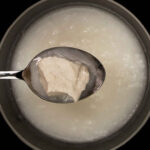 Home Remedies to Help a Dog with Black Stools [Vet Approved] - Scooping poop isn’t anybody’s favorite chore. However, the appearance of your dog’s feces can provide important information about their health… [...]
Home Remedies to Help a Dog with Black Stools [Vet Approved] - Scooping poop isn’t anybody’s favorite chore. However, the appearance of your dog’s feces can provide important information about their health… [...] Is Orange Stools in Dogs a Reason to Worry + Vet Tips to Help - It is not unusual for dogs to come into my clinic with diarrhea and their loose stool will often be… [...]
Is Orange Stools in Dogs a Reason to Worry + Vet Tips to Help - It is not unusual for dogs to come into my clinic with diarrhea and their loose stool will often be… [...] Dog’s Poop is Black But Dog Acts Normal & Seems Fine - Having practiced as a vet for over 10 years now, I’ve seen my fair share of canine poop issues. One… [...]
Dog’s Poop is Black But Dog Acts Normal & Seems Fine - Having practiced as a vet for over 10 years now, I’ve seen my fair share of canine poop issues. One… [...]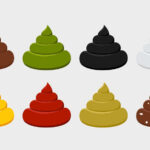 Dog Poop Color Chart: a Vet Explains the Meaning of Colors - Dog poop comes in nearly all colors on the spectrum. Some colors may be alarming, and some may be worrisome.… [...]
Dog Poop Color Chart: a Vet Explains the Meaning of Colors - Dog poop comes in nearly all colors on the spectrum. Some colors may be alarming, and some may be worrisome.… [...]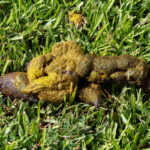 Yellow Dog Poop? Our Veterinarian Shares What to Do - Keeping an eye on your dog’s poop color and consistency can really help you spot changes in his health. One… [...]
Yellow Dog Poop? Our Veterinarian Shares What to Do - Keeping an eye on your dog’s poop color and consistency can really help you spot changes in his health. One… [...] Black Dog Poop? Our Veterinarian Shares What You Should Do - We’re all aware that the normal color of dog poop is brown. It may come in different shades, and some… [...]
Black Dog Poop? Our Veterinarian Shares What You Should Do - We’re all aware that the normal color of dog poop is brown. It may come in different shades, and some… [...] White Dog Poop: Why It Happens and What to Do - Veterinarians see a lot of different colored dog poop, but one color that might surprise dog owners is white. It… [...]
White Dog Poop: Why It Happens and What to Do - Veterinarians see a lot of different colored dog poop, but one color that might surprise dog owners is white. It… [...] Dogs Not Pooping for 3 Days Need Veterinary Care - As a practicing veterinarian, I encounter dogs with constipation issues at least once a week. There are many different factors… [...]
Dogs Not Pooping for 3 Days Need Veterinary Care - As a practicing veterinarian, I encounter dogs with constipation issues at least once a week. There are many different factors… [...] Blood in Dog’s Poop: A Vet Shares What to Do [with Pictures] - You probably don’t pay a lot of attention to your dog’s poop, until the day you notice some blood in… [...]
Blood in Dog’s Poop: A Vet Shares What to Do [with Pictures] - You probably don’t pay a lot of attention to your dog’s poop, until the day you notice some blood in… [...]Disclaimer: This website's content is not a substitute for veterinary care. Always consult with your veterinarian for healthcare decisions. Read More.



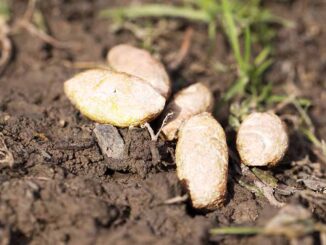

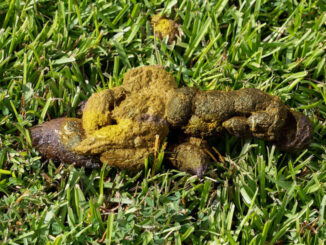
Be the first to comment